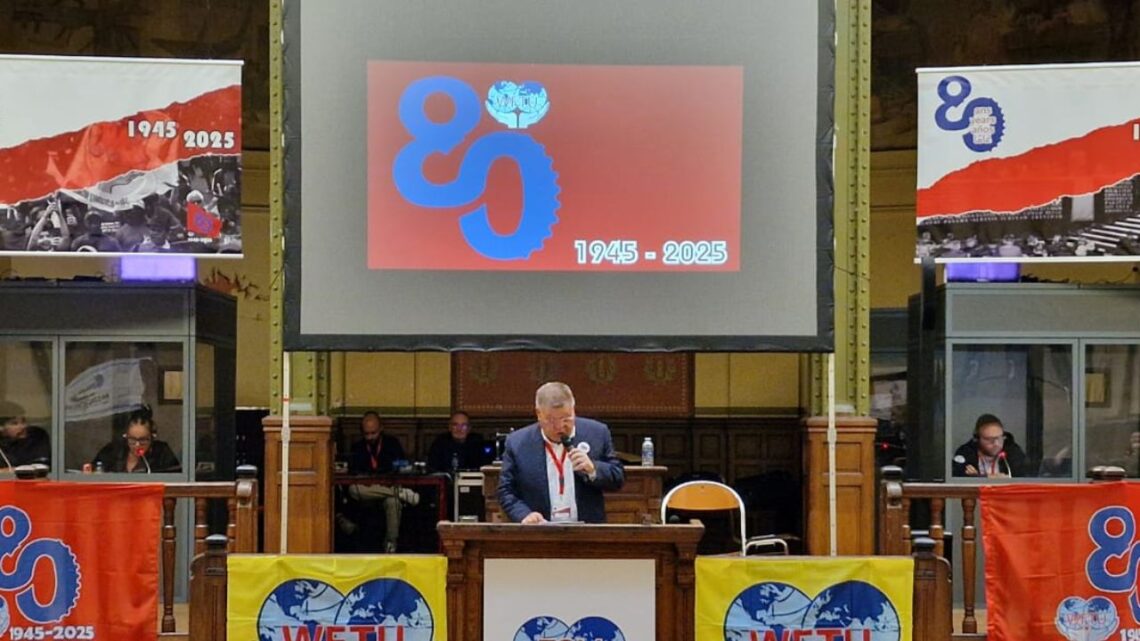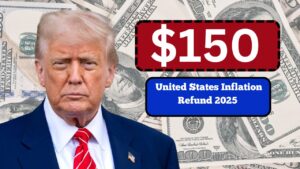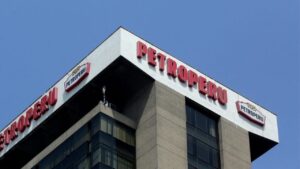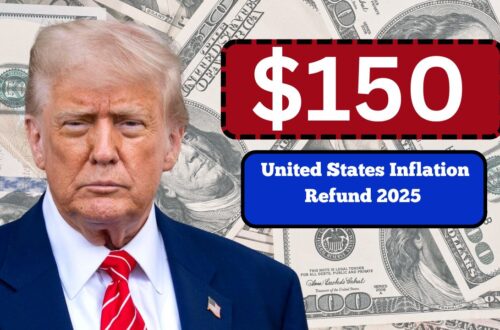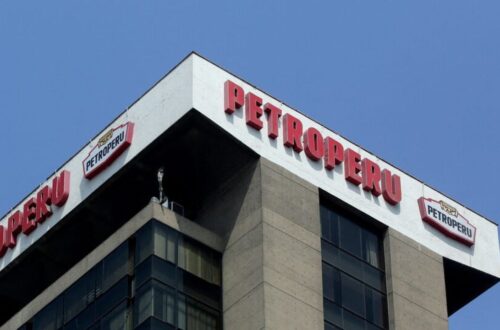On October 14, 2025, in Lima, Peru, the World Federation of Trade Unions (WFTU) marked its 80th anniversary in a spectacular celebration, bringing together hundreds of workers and high-level trade unionists from across the globe.
This event underscored the WFTU’s enduring relevance, its internationalist character, and the renewed momentum of the global labor movement.
Held at the Mario Huamán Auditorium of the Federation of Civil Construction Workers of Peru, the gathering featured stirring speeches, historical retrospectives, solidarity messages, and calls to action for workers’ rights.
The occasion was both commemorative and forward-looking, reaffirming the shared commitments of unions and highlighting new challenges facing workers in the 21st century.
In this article, we delve into all the key facts, figures, voices, and themes of the celebration, map out the major highlights, and assess what this milestone means for the future of labor solidarity.
Key Details of the 80th WFTU Anniversary in Peru
| Aspect | Detail / Figure |
|---|---|
| Date | October 14, 2025 |
| Location | Mario Huamán Auditorium, Lima, Peru |
| Host organization | Federation of Civil Construction Workers of Peru |
| Number of participants | “Hundreds of workers” (local and international) |
| Key speakers | Gustavo Minaya (Vice-President, WFTU), Valentín Pacho (former Deputy General Secretary, WFTU), George Mavrikos (Honorary President, WFTU / President, IWI) |
| Main themes | Historical trajectory of WFTU; international solidarity; support for trade-union bases worldwide; workers’ rights; unity & resolve |
| Special focus | The WFTU’s internationalist role; solidarity with oppressed peoples; adaptation to modern challenges |
| Host city significance | Lima is the capital and a hub for regional labor movements |
| Affiliated bodies present | WFTU, trade unions from Latin America and beyond, IWI (International Workers’ Institute) |
| Outcome emphasis | Renewed commitment to global worker unity; strategies for future struggles |
Historical Context- Tracing WFTU’s 80 Years
The World Federation of Trade Unions (WFTU) was established in 1945, in the aftermath of World War II, as a global body to unite workers across continents and ideologies.
Over the decades, it has weathered the changing geopolitics, the Cold War, the decline of state socialist systems, globalization, neoliberal austerity, and more.
At the Lima celebration, speakers retraced that journey—from its founding to the present day—emphasizing how the WFTU has preserved its class-oriented, internationalist identity and continued defending workers’ rights globally in times of crisis.
Particularly, they underscored the WFTU’s role in solidarity with oppressed peoples (colonized, exploited, occupied) and its backing of trade union bases in struggles for decent work, social justice, dignity, and peace.
Highlights of the Lima Celebration
1. Venue & Atmosphere
The Mario Huamán Auditorium—belonging to the Federation of Civil Construction Workers of Peru—serves as a symbolic seat of labor solidarity in Peru. The gathering there brought together workers, union leaders, delegates, and guests in a communal spirit of reflection and action.
The event reportedly took place “before hundreds of workers,” indicating broad local participation. The crowd included not only Peruvian unionists but also representatives from other Latin American and international labor bodies.
2. Distinguished Speakers & Their Messages
- Gustavo Minaya, Vice-President of the WFTU
Delivered a keynote that highlighted WFTU’s current strategies, ongoing campaigns, and the federation’s emphasis on grassroots union work, democracy, and global coordination. - Valentín Pacho, Former Deputy General Secretary of WFTU
Offered a retrospective on internal challenges, ideological debates, and the transformations WFTU has undergone—especially in adapting to a multipolar, neoliberal environment. - George Mavrikos, Honorary President of WFTU & President of the International Workers’ Institute (IWI)
Emphasized the WFTU’s internationalist character, its steadfastness in defending oppressed peoples and solidarity campaigns, and the need for unions to remain dynamic, militant, and rooted in worker bases.
Each speaker traced WFTU’s trajectory and connected it to contemporary struggles—labor rights, inequality, environmental justice, public services, decent work, and fair wages.
3. Thematic Emphases & Solidarity
A recurring message was the affirmation of the WFTU as a global anchor for worker unity. The speakers insisted that despite fragmentation, ideological divides, and neoliberal pressures, trade unions must stand united in solidarity with oppressed nations and peoples.
They addressed challenges such as the privatization of essential services, informal labor, precarious contracts, attacks on union rights, and global economic instability—calling for renewed coordination, mobilization, and outreach.
They also stressed the importance of reinforcing trade-union bases, especially in underrepresented regions, and connecting labor struggles with social justice, anti-imperialist campaigns, and rights for marginalized groups.
With powerful voices like Gustavo Minaya, Valentín Pacho, and George Mavrikos reminding us of the WFTU’s legacy, the message was clear: the movement must adapt, unify, and lead.
For workers, union bases, and progressive movements, this milestone is a juncture—an opportunity to renew commitment, forge alliances, and chart a path forward that is rooted in justice, dignity, and collective power.
The 80th anniversary is not an endpoint but a renewed starting line for the struggles ahead.

